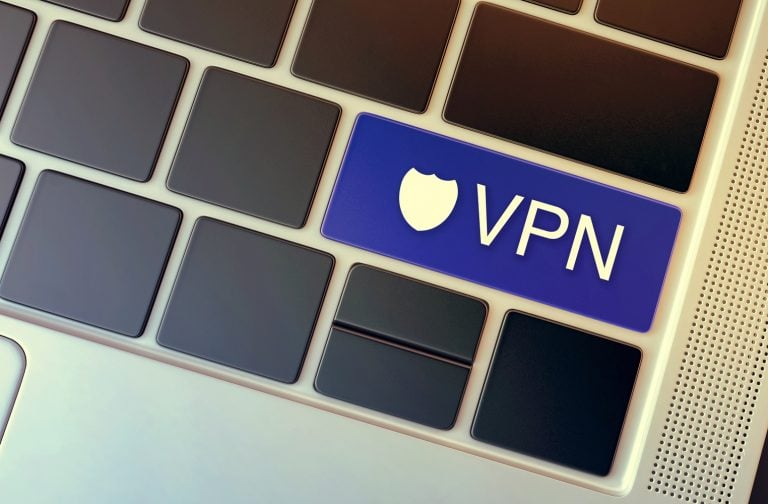
2020-1-2 02:15 |
Do you use a VPN? It’s a privacy-enhancing tool that everyone should be using, especially those with digital assets. Or do you happen to be older than the typical crypto trader? Both of these characteristics are part of a list of so-called ‘red flags’ that can get you in trouble with a new dragnet that is being established in Israel.
Also Read: Why a VPN Is the First Layer You Should Pull On When Browsing the Web
Too Many Red FlagsOn December 31, 2019 the Israel Money Laundering and Terror Financing Prohibition Authority published a draft guide titled ‘Red Flags in the Virtual Assets Field’ for the public to review. The document contains a list of ‘red flags’ that is intended to help the private sector formulate a policy on anti-money laundering risks related to digital assets such as cryptocurrencies. It was compiled by the authority in collaboration with various financial regulators and members of the industry.
The authority noted that digital assets can promote economic innovation, but are “a challenge” to enforcement agencies seeking to conduct financial investigations and seize prohibited property originating from crime. Therefore, the guide was designed to help financial bodies identify activity that can be “problematic.”
The authority also said this guide was compiled in collaboration with various financial regulators and members of the industry. However, voices in the Israeli crypto community have already criticized it for having too many so-called ‘red flags’ which are the result of excessive and unjustified concerns by the regulators. “Such red flags hurt both the growing industry and technology, and the fundamental rights inherent in democracy: the freedom of the individual, the right to privacy, the right to property and freedom of occupation,” commented lawyer and accountant Ron Tsarfaty, the Chief Financial and Compliance Officer at Bit2c.
The Israel Money Laundering and Terror Financing Prohibition Authority was established in 2002 as an independent financial intelligence unit acting in accordance with the international rules against money laundering prescribed by the Financial Action Task Force (FATF). In 2018 Israel became the 35th member state in the FATF, the intergovernmental organization founded in 1989 by the countries of the G7. In June 2019 the FATF published its ‘final guidance’ on crypto assets and service providers, which has forced many industry companies around the world to change how they do business at the expense of clients’ privacy.
Targeting Older People, VPN and Tor UsersThe guide draft lists dozens of red flags and explains that in the event that one or more of these is triggered the service providers must investigate the matter and if suspicions of money laundering or terror financing arise, report immediately to the authority or the police. Among the dozens of red flags listed, many focus on users who try to protect their privacy, for example by using coin mixers or dealing in dash, monero or zcash. There is also focus on users of VPNs, Tor and any other privacy enhancing technology.
The red flags also cover obvious cases such as darknet vendors, suspected ICO pump and dumps or Ponzi scams, and ransomware hackers. However, the list of suspicious activities and clients also includes older people, users of P2P or decentralized exchanges, people who appear to be in a hurry to trade and even people who donate to charities using crypto.
The long list of ref flags that service providers, such as crypto exchanges, are required to monitor includes the following:
Purchase of virtual assets in high amounts of cash; Purchase of virtual assets in high amounts between private individuals; Complex activity of conversion or transfer of virtual assets, without reasonable explanation; Change of address, telephone number or other means of identification frequently, without reasonable explanation; The recipient of the service is not within the typical population of virtual assets, such as an older person; The recipient of the service refuses to present a legitimate source of funds or documents verifying the information provided, without reasonable explanation; The recipient of the service shows indifference to the terms of service, including fees and costs; The activity does not match the normal service recipient activity and the identification documents provided by it; The recipient of the service demonstrates pressure or urgency to obtain virtual assets and is not ready to disclose the purpose of the acquisition; The recipient of the service is a public person (including a relative or business partner of a public person); The service recipient requests information about the service provider’s internal systems, policies and procedures regarding the prohibition of money laundering; The service recipient provides inaccurate or incorrect information about the transaction or its relationship with the other party to the transaction; The service recipient mainly uses anonymous or high value currencies; The service recipient enters the service provider’s system using an IP address associated with VPN, The Onion Router (TOR) software or another software that allows users to employ increased anonymity; The service recipient receives virtual assets from illegal gambling sites; The recipient of the service transacts with foundations or nonprofits that receive virtual assets; The recipient of the service carries out transactions in high frequency or high amounts, after a long period of inactivity; The recipient of the service frequently changes its identification information, such as address, email, IP address or bank account; The recipient of the service shows indifference to paying high fees for switching virtual assets to fiat compared to commissions paid to other service providers.What do you think about the ‘red flags’ that can get Israeli crypto traders in trouble? Share your thoughts in the comments section below.
Images courtesy of Shutterstock.
Verify and track bitcoin cash transactions on our BCH Block Explorer, the best of its kind anywhere in the world. Also, keep up with your holdings, BCH and other coins, on our market charts at Bitcoin.com Markets, another original and free service from Bitcoin.com.
The post Using a VPN May Get Israeli Crypto Traders in Trouble appeared first on Bitcoin News.
origin »Bitcoin price in Telegram @btc_price_every_hour
GET Protocol (GET) на Currencies.ru
|
|












